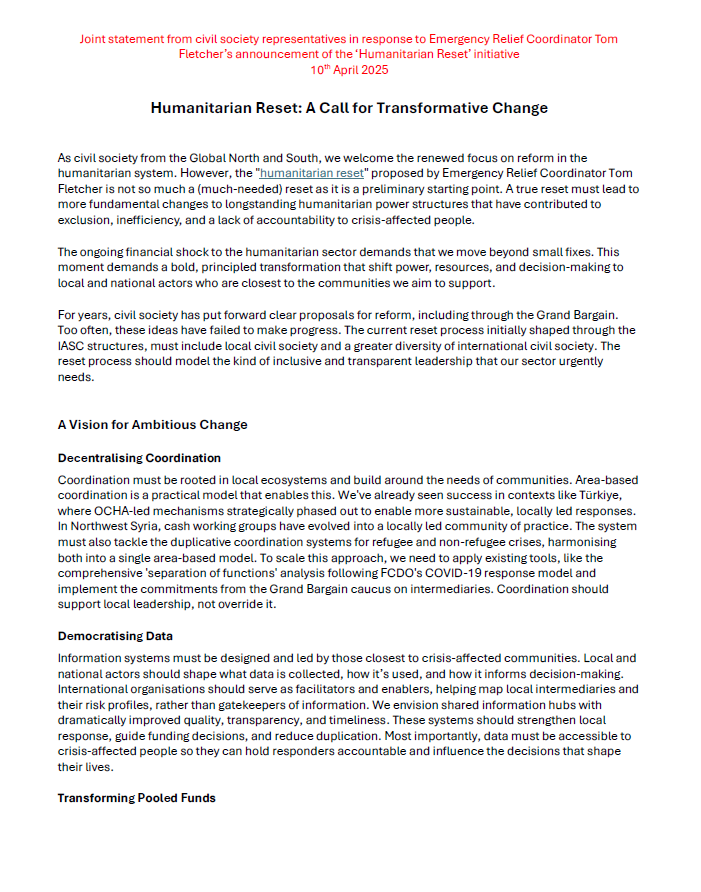ASAL Humanitarian Network (AHN)
GLOBAL CIVIL SOCIETY CALLS FOR A HUMANITARIAN RESET TO SHIFT POWER, RESOURCES, AND DECISION-MAKING TO LOCAL ACTORS
Humanitarian Reset: A Call for Transformative Change
The joint statement outlines a bold agenda to decentralise coordination, democratise data, transform pooled funds, and strengthen community-led accountability.
In April 2025, civil society networks from the Global South and North issued a joint statement in response to Emergency Relief Coordinator Tom Fletcher’s Humanitarian Reset initiative. The statement welcomes the renewed focus on reform but stresses that a genuine reset must go beyond procedural improvements—it must transform humanitarian power structures and reorient decision-making toward local and national actors who are closest to affected communities.
The paper outlines a bold vision for change built around four priorities: decentralising coordination, democratising data, transforming pooled funds, and advancing community-driven accountability. These pillars, if fully realised, would create a more inclusive and equitable humanitarian system that enables local leadership, transparency, and shared governance.
The statement also proposes a two-phase roadmap to deliver transformation within twelve months. The first phase focuses on inclusive design and co-creation of reform processes between civil society, the ERC, donors, and UN agencies. The second phase envisions structural reorganisation, including reformed pooled funds, redefined institutional roles, and stronger accountability to affected populations as the core measure of success.
This call to action reinforces that the future of humanitarian action is local. Meaningful reform requires courage, collaboration, and commitment to shift resources and trust to those leading response efforts on the ground.
📄 Click the image below to download the full statement (PDF) and explore detailed proposals and signatories.

